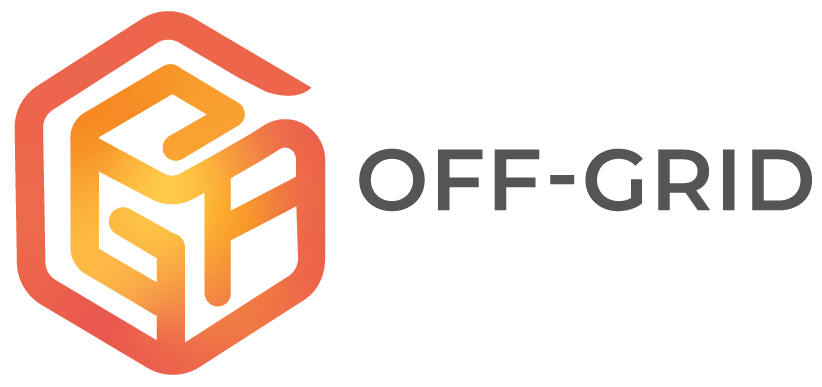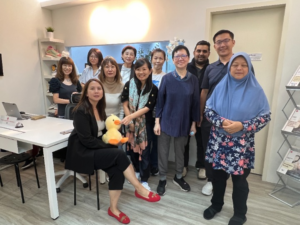Can you imagine your retail business thriving with a team of passionate and skilled individuals who are all working towards driving success and achieving your business goals? Sounds impressive. Well, here’s the good news – you can make it a reality! Our guide to talent acquisition is not just any recruitment guide. Your ultimate action plan is to turn that vision into a real-life success story. It’s all about building a culture and creating a team that shares your values and vision. Whether you’re a seasoned retailer or just starting, you can build your retail dream team today!
Are you excited? Let’s get rolling!

Overview
Like building a winning sports team, talent acquisition is crucial for organisational success. This involves attracting diverse talent pools and conducting thorough assessments and interviews to ensure the best-fit candidates are selected. The retail industry faces unique challenges and solutions related to talent acquisition, including effective forecasting, nurturing a high-quality talent pipeline, fostering collaboration, and utilising technology. Continuous improvement strategies are also essential, involving ongoing training, feedback mechanisms, performance reviews, technology integration, and employee recognition programs to drive excellence and adaptation within the retail industry. For those seeking advanced skills, Off-Grid Leadership Courses offer a pathway to staying ahead in the dynamic retail landscape.
What Is Talent Acquisition?
Talent acquisition, or recruitment, is a crucial process that every successful organisation must prioritise. To build a winning team, you must attract, assess, and hire the most qualified individuals with the right skills and experiences. By doing so, you can ensure that your company remains competitive and achieves its goals.
Think of it as a strategic investment in your company’s future. Like a sports team, you must carefully evaluate and select the best talent to lead you to victory. With the right people on board, you can achieve extraordinary things and reach new heights. Don’t settle for anything less than excellence – prioritise talent acquisition today.

Talent Acquisition Process
The process typically involves various stages, such as job postings, candidate screening and selection, interviews, background checks, and job offers. Talent acquisition ensures the organisation has the right people with the necessary skills and qualifications to achieve its business objectives.
Lead Generation:
Regarding lead generation for recruitment purposes, it’s essential to cast a wide net and explore various channels. This includes scouring job boards, leveraging social media platforms, tapping into employee referrals, and conducting targeted outreach to attract a diverse pool of qualified candidates. These different strategies can increase your chances of finding the right talent that fits your organisation’s needs.
Recruiting and Attracting Top Talent:
To attract potential candidates, it is essential to create job descriptions that showcase your company culture, growth opportunities, and unique offerings compellingly. You can grab their attention and pique their interest in working with your organisation. Additionally, targeted outreach can be used to reach out to specific individuals and make them aware of the exciting opportunities available within your company. By highlighting these aspects, you can increase your chances of finding suitable candidates for your team.
Interview and Assessment:
To better understand a job candidate’s abilities and how they might fit into your company culture, it’s essential to look beyond their resume. One effective way to do this is by utilising various tools such as structured interviews, skills tests, and case studies. These methods can reveal a candidate’s true potential, strengths, and weaknesses, giving you a more comprehensive view of their suitability for the role. So, to ensure you’re hiring the best possible candidate, a more holistic approach to the hiring process is worth considering.
Evaluating References:
Conducting thorough reference checks can provide a wealth of information about a potential candidate beyond what’s on their resume. By contacting their previous employers, you can gain valuable insights into the candidate’s work ethic, job performance, communication skills, and personality traits. This information can be crucial in making an informed hiring decision and building a productive and successful team.
Selecting the Best Candidates:
When making important decisions, it’s crucial to compare apples to apples. This means closely examining all the available data and carefully evaluating each candidate based on various factors. These include skills and experience, ability to fit in with the company culture, and long-term potential for growth and success. By taking the time to consider all of these factors, you can make the perfect choice for your needs and ensure that you’re hiring the best possible candidate for the job.
Hiring and Onboarding
To ensure a smooth and successful onboarding process for new team members, it is essential to extend a competitive offer. By offering a competitive package, you can attract top talent and show your commitment to investing in your team. A well-structured onboarding process can also help new hires feel welcome and confident. It can also set them up for success by giving them the tools and resources they need to excel in their new position. So, if you want to make it official, extend a competitive offer and create a seamless onboarding process for your new team members.

Tips for Effective Talent Acquisition
Did you know that the quality of a retail organisation’s workforce plays a crucial role in determining its success? In this blog post, I’ll share 4 essential tips to help you effectively acquire talented individuals for your retail sector. Following these tips can build a solid team to help your organisation thrive in the ever-changing retail landscape.
Forecast Effectively
One of the critical aspects of talent acquisition in retail is the ability to forecast the future needs of your business. Retail is known for its seasonality and fluctuating demands, making it essential to anticipate hiring requirements accurately. To forecast effectively, consider:
- Analysing historical data: Review past sales patterns, foot traffic, and other relevant metrics to identify peak seasons and trends.
- Collaborate with department heads: Engage with various departments to understand upcoming projects, expansions, or changes that may impact staffing needs.
- Stay updated on industry trends: Keep abreast of the latest developments in the retail sector to adjust your talent acquisition strategy proactively.
Accurate forecasting ensures you’re not caught off guard, allowing for a more strategic and timely hiring process.
Build a High-Quality Pipeline
A strong talent pipeline is the lifeblood of effective talent acquisition. Instead of scrambling to find suitable candidates when a position opens up, focus on continually nurturing a pool of potential hires. Here’s how to build a high-quality talent pipeline:
- Utilise social media: Leverage platforms like LinkedIn to connect with potential candidates and build long-term relationships.
- Attend industry events: Networking at conferences and trade shows can help you identify top talent and establish a rapport before job openings arise.
- Foster employee referrals: Encourage your existing team to recommend qualified candidates, tapping into their networks for potential hires.
Maintaining a robust talent pipeline will reduce time-to-fill and increase the likelihood of securing top-notch candidates.
Work Collaboratively
Effective talent acquisition is a team effort that involves collaboration between HR, hiring managers, and other stakeholders. Foster a collaborative environment by:
- Clearly define roles and responsibilities: Establish transparent communication about who is responsible for what in the hiring process to avoid confusion and streamline decision-making.
- Involve hiring managers early: Ensure hiring managers are involved from the beginning, providing insights into the specific skills and qualities needed for success in their teams.
- Implement collaborative tools: Leverage technology to facilitate seamless communication and collaboration among team members, improving the efficiency of the talent acquisition process.
A collaborative approach ensures that everyone is aligned on the hiring goals and contributes to the overall success of the recruitment process.
Do Not Rush the Process
In the fast-paced world of retail, the urgency to fill open positions can be overwhelming. However, rushing the talent acquisition process can lead to suboptimal hires and long-term challenges. Instead, prioritise:
- Thorough screening: Take the time to thoroughly assess candidates’ skills, experience, and cultural fit before moving them through the hiring process.
- Multiple interview stages: Implement multiple interview stages involving different team members to gain a comprehensive understanding of a candidate’s abilities and potential contributions.
- Reference checks: Conduct diligent reference checks to verify candidates’ credentials and past performance and ensure they align with your organisation’s values and goals.
Taking the time to conduct a comprehensive hiring process will pay off in the long run, as you will attract candidates who are not only qualified but also the right fit for your retail team.

11 Essential Steps to Building Your Sales Associate
Are you running a retail business and looking to boost your sales revenue? You must know that having a team of skilled and motivated sales associates is vital to delivering exceptional customer experiences and driving profits. In this blog post, I’ll share some essential steps to help you build and nurture a high-performing sales associate team. Let’s get started!
1. Exhibit Trust in Your People
Trust is the foundation of any successful team. Demonstrate your confidence in your sales associates by empowering them with responsibilities and autonomy. Allow them to take ownership of their tasks, make decisions, and contribute to the team’s success. When associates feel trusted, they are more likely to be engaged and motivated to excel in their roles.
2. Listen to Your Team’s Ideas
A truly collaborative and innovative sales team is built on open communication. Actively listen to your sales associates’ ideas, suggestions, and concerns. Encourage an environment where team members feel comfortable sharing their thoughts, fostering a culture of creativity and continuous improvement.
3. Identify and Build Upon Associate Strengths
Recognise the unique strengths and talents of each sales associate. Assign tasks that align with their strengths, allowing them to excel in their roles. This boosts individual confidence and contributes to the team’s overall success.
4. Emphasise Training
Invest in continuous training to ensure your sales associates stay up-to-date with industry trends, product knowledge, and effective sales techniques. Provide regular workshops, seminars, and online training resources to keep your team sharp and ready to navigate the ever-evolving retail landscape.
5. Leverage Associate Expertise
Your sales associates are on the front lines, interacting with customers daily. Leverage their unique insights and experiences to improve processes, enhance customer service, and refine sales strategies. A team that feels their expertise is valued will invest more in the business’s success.
6. Encourage a Competitive Atmosphere
Healthy competition can drive motivation and performance. Foster a sense of friendly competition among your sales associates, whether through sales contests, incentives, or recognition programs. This can ignite a spark of ambition and boost overall team productivity.
7. Motivate with Rewards
Recognise and reward exceptional performance. Whether through monetary incentives, recognition programs, or career advancement opportunities, providing tangible rewards for hard work reinforces a positive and motivated sales culture.
8. Arm Your Team with Tools
Equip your sales associates with the tools they need to excel. This includes up-to-date technology, efficient point-of-sale systems, and any resources that can streamline their tasks and enhance the customer experience.
9. Don’t Dismiss Unique Ideas
Encourage out-of-the-box thinking and creativity. Sometimes, the most innovative ideas come from unexpected places. Create an environment where associates feel comfortable sharing unique ideas and where experimentation is valued.
10. Get Creative
Inject creativity into your sales strategy. Explore new ways to engage customers, design eye-catching displays, and implement innovative sales techniques. Creativity attracts customers and keeps your sales associates excited about their work.
11. Create a Bubble of Positivity
Foster a positive work environment by promoting teamwork, gratitude, and a healthy work-life balance. Positivity is contagious and can significantly impact the overall atmosphere of your team, leading to increased job satisfaction and productivity.

Tackling Retail’s Common Challenges
The retail industry can be challenging with its constant changes and obstacles. But don’t worry! There are ways to increase sales, simplify operations, manage staffing, and even embrace new technologies to make your retail business more resilient and prosperous. To help you out, we’ve got some tips that you might find helpful. So, stay proactive, be innovative, and face challenges head-on!
Are you ready to learn more? Let’s get it on!
The Quest for Increased Sales
Boosting sales is a perpetual goal for retailers, and achieving this requires a multifaceted approach. Consider these strategies:
- Leverage Data Insights: Harness the power of data analytics to understand customer behaviour, preferences, and buying patterns. Use this information to tailor marketing strategies and enhance the customer experience.
- Implement Cross-Selling and Upselling: Train your sales associates to identify opportunities for cross-selling and upselling. Encourage suggestive selling techniques to maximise each customer interaction.
- Optimise Online Presence: A robust online presence is crucial in today’s digital age. Invest in e-commerce platforms, enhance your website, and leverage social media to reach a broader audience.
Inefficient Store Operations
Streamlining store operations is essential for maximising efficiency and minimising costs. Address operational inefficiencies with these strategies:
- Implement Technology Solutions: Invest in technology that streamlines inventory management, automates routine tasks, and enhances overall operational efficiency.
- Train and Empower Staff: Provide comprehensive training, emphasising the importance of time management and effective communication. Empower them to take ownership of their tasks and contribute to operational improvements.
- Regularly Evaluate Processes: Conduct regular audits and assessments of your store operations. Identify bottlenecks and areas for improvement, then implement changes to optimise efficiency.
Workforce Challenges
Recruiting, retaining, and managing a skilled workforce poses significant challenges in the retail sector. Address staffing issues with these strategies:
- Strategic Talent Acquisition: Implement a strategic talent acquisition plan, considering long-term business goals and seasonal demands. Maintain a talent pipeline to ensure a pool of qualified candidates is readily available.
- Invest in Employee Development: Prioritize ongoing training and development opportunities for your staff. This not only enhances their skills but also improves job satisfaction and loyalty.
- Offer Competitive Compensation: Stay competitive in the job market by offering competitive wages, benefits, and opportunities for advancement. A satisfied and motivated staff is more likely to contribute to the success of your business.
Opportunity for Disruption
The retail landscape continually evolves, presenting challenges and opportunities for disruption. Stay ahead of the curve with these strategies:
- Embrace E-commerce Trends: Invest in e-commerce capabilities and stay abreast of emerging trends in online retail. This includes exploring new sales channels, optimising your website, and implementing digital marketing strategies.
- Adapt to Changing Consumer Behaviours: Regularly assess and adapt to consumer preferences and behaviour shifts. Stay connected with your target audience through surveys, feedback, and social media to understand their evolving needs.
- Cultivate Innovation: Foster a culture of innovation within your organisation. Encourage your team to explore new ideas, technologies, and partnerships that can position your business as a leader in the evolving retail landscape.

Continuous Improvement and Adaptation
Retailers prioritising continuous improvement and adaptation have a greater chance of thriving in this dynamic landscape. That’s why we share key strategies that can drive success in the retail industry. This section will explore it from regular training and development programs to feedback mechanisms, performance reviews, goal setting, technology integration, and employee recognition and rewards programs. Take advantage of the opportunity to stay ahead of the game.
Regular Training and Development Programs
One of the cornerstones of retail success is ensuring that employees are equipped with the knowledge and skills necessary to excel in their roles. Regular training and development programs play a crucial role in achieving this. By investing in ongoing education, retailers empower their staff to stay abreast of industry trends, customer preferences, and evolving technologies. Whether it’s product knowledge, customer service, or sales techniques, continuous learning fosters a culture of expertise that can set a retail business apart from its competitors.
Feedback Mechanism
A robust feedback mechanism is essential for continuous improvement. Retailers should establish open, honest communication channels between employees, managers, and customers. Constructive feedback provides valuable insights into areas that need improvement, identifies strengths to be celebrated, and fosters a culture of collaboration. Regular feedback loops can help retailers make informed decisions, adapt to changing market dynamics, and enhance customer experience.
Performance Reviews and Goal Setting
Setting clear expectations through performance reviews and goal setting is a fundamental aspect of driving excellence in retail. Regular evaluations enable employees to understand their strengths and areas for improvement, fostering a sense of accountability. By aligning individual goals with the broader objectives of the business, retailers create a unified and motivated workforce. This process not only facilitates continuous improvement but also ensures that employees are working towards a common purpose.
Technology Integration
In the digital transformation era, retailers must embrace technology to stay competitive. Integration of cutting-edge technologies can streamline operations, enhance customer experiences, and provide valuable insights through data analytics. Whether implementing an advanced point-of-sale system, leveraging artificial intelligence for inventory management, or utilising data analytics for personalised marketing strategies, technology integration is a crucial driver of adaptation and efficiency in retail.
Employee Recognition and Rewards Program
Recognising and rewarding employees for their contributions is a powerful motivator. An effective employee recognition and rewards program boosts morale and reinforces positive behaviours and accomplishments. Whether through performance-based bonuses, employee of the month awards, or recognition ceremonies, acknowledging hard work creates a positive work environment that encourages continuous improvement. Recognised and motivated employees are more likely to adapt to changes and contribute to the business’s success.
Taking The Next Steps
Achieving success in retail demands a proactive talent acquisition strategy and continuous improvement. From effective forecasting to collaborative hiring, embracing technology, and addressing common challenges, retailers can elevate their teams.
For advanced skills, consider enrolling in Off-Grid’s Strategic Planning for Business Leaders to stay ahead in the dynamic retail landscape!




